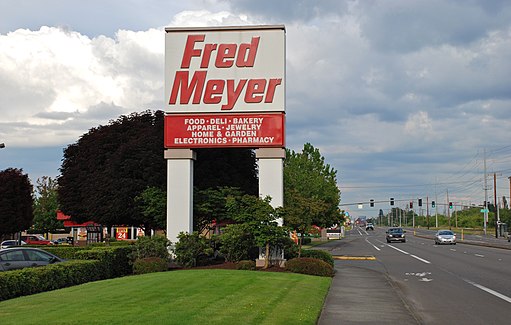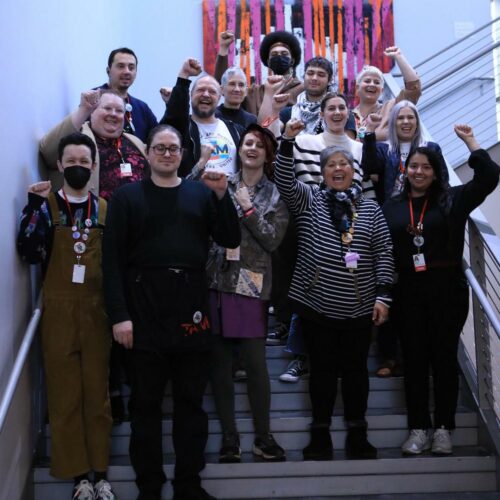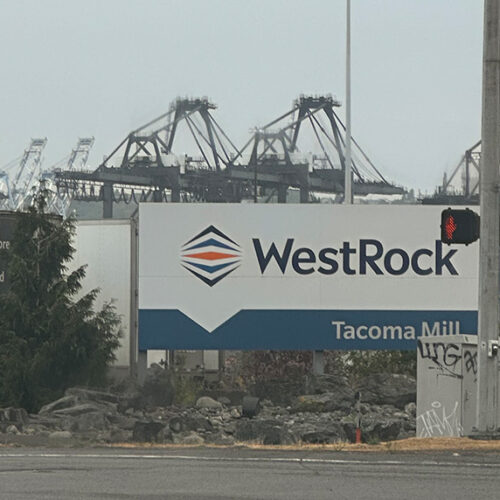
Northwest Grocery Store Workers Vote To Approve Strike If Wage Negotiations Collapse
Read On
BY REBECCA ELLIS / OPB
Grocery workers from across Oregon and southwest Washington have voted to approve a strike if negotiations with four of the region’s largest supermarket chains deadlock.
The United Food and Commercial Workers Local 555, a union representing more than 20,000 grocery workers in the region, has been pushing Albertsons, Fred Meyer, QFC, and Safeway to increase workers’ wages as negotiators hammer out new contracts for members.
After tallying up the final batch of votes from union members in Baker City over the weekend, Kelley McAllister, communications director for the union, said it’s clear members across the region “overwhelmingly” support calling a strike if future negotiations with employers fall through. The next meeting between the two parties is Thursday, Aug. 29.
“It’s possible we reach a tentative agreement,” McAllister said. “And it’s possible they throw the stuff on the table and say, ‘Our economic conditions are not their problem,’ and they walk away. If they do that, that’s not good. That feels to me like asking for a strike.”
McAllister added it’s also possible no resolution is reached and the negotiations spill over into future meetings.
Jeffery Temple, director of corporate affairs for Fred Meyer Stores, Inc., said the company will come to the table with offers of larger wage increases than those approved in the last two contracts, as well as a pension and benefits package that allows most employees to pay $30 a month or less for health care. The company hopes the bargaining items, which Temple calls “pretty aggressive,” will avert picketing outside Fred Meyer stores.
“A strike doesn’t help anybody, and it certainly doesn’t help the negotiation process,” Temple said. “We’re really just focused on avoiding a strike.”
What a strike would look like remains up in the air. McAllister said nothing’s been ruled out: All of the union’s 20,000 grocery workers could walk out at the same time, leaving some of the region’s biggest supermarkets virtually unstaffed; the strike might start with suburban stores and then move into the cities; or they might choose to target just one employer.
“I think that will depend where our bargaining leads us on Thursday,” McAllister said.
To avoid a strike, McAllister said the bargaining team would need to see an offer of a “notable” wage increase on the table. Union negotiators are also asking for a big bump in pay for workers in the bakery, deli and cheese departments, positions they believe are traditionally filled by females.
A new study, commissioned by the union, found a median wage gap of $3.70 per hour between men and women working under the grocery contract at Portland-area Fred Meyer stores. The study’s author attributed the wage gap to the low-paying positions for which women were hired.
Copyright 2019 Oregon Public Broadcasting. To see more, visit opb.org
Related Stories:

Workers at Tacoma Art Museum vote unanimously to unionize
To unionize, Tacoma Art Museum Workers United [TAMWU] needed the majority of its 26 workers to vote yes. After two days of voting in an election overseen by the Washington State Public Employment Relations Commission, the unanimous results came in Thursday evening — 26 in favor of unionizing.

Federal grants could improve utility safety and add jobs
Four utilities in Washington state received funding from the U.S Department of Energy to strengthen the electrical grid against future wildfires and ensure reliability to customers. That funding comes from the federal Grid Resilience and Innovations Partnerships Program, which is investing in 58 projects across 44 states.

What will happen to employees at WestRock Paper Mill when it closes?
With the impending closure of the WestRock Paper Mill in Tacoma, about 400 workers could be displaced.
“It’s really significant,” said Chelsea Mason-Placek, who is the workforce development director for the Washington State Labor Council. “This is a much larger layoff than we typically see.”















